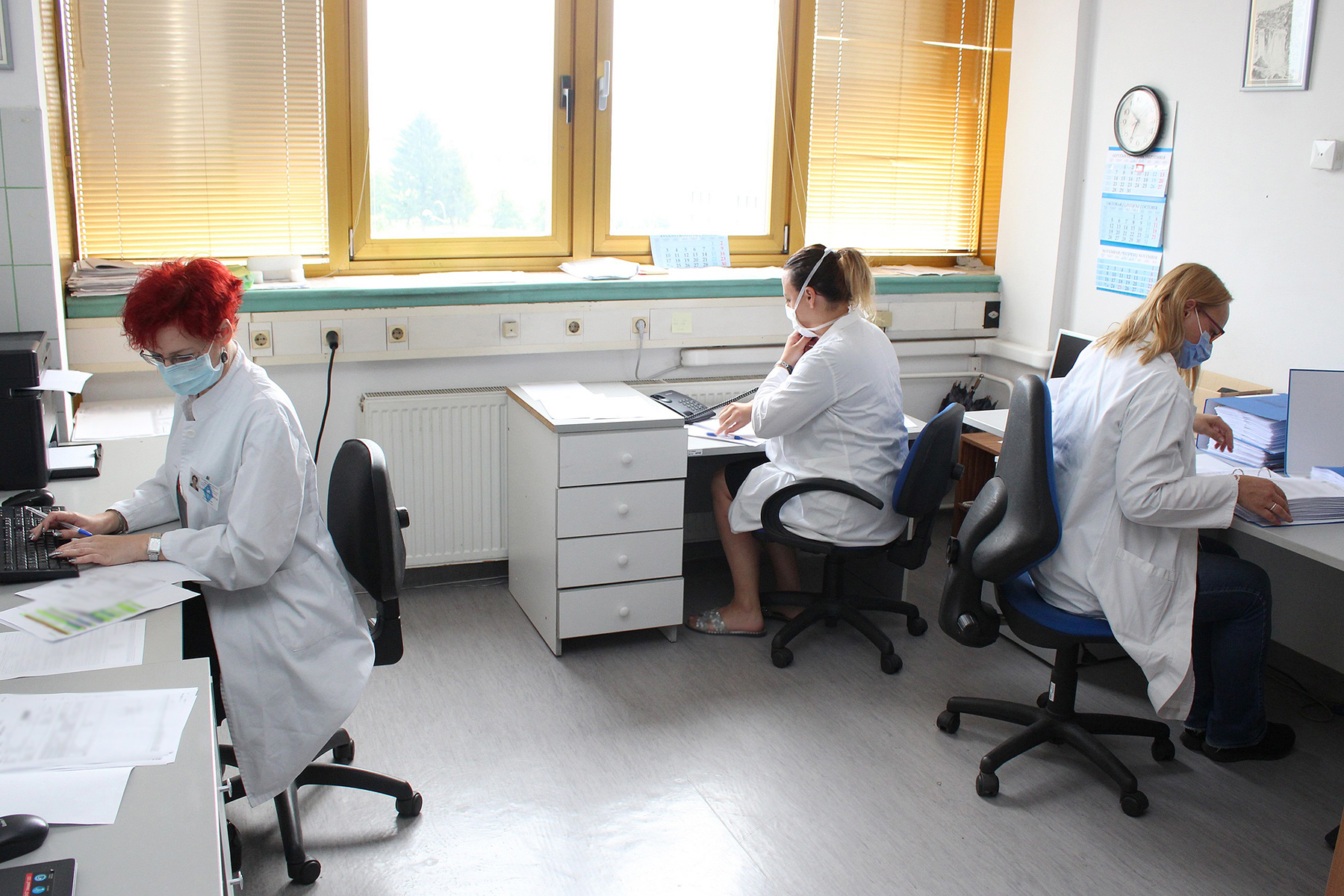
Behind every number we see in the daily Covid-19 reports are real people, and their names, contacts and part of their destiny, when it comes to Sarajevo Canton, are best known to health professionals of the Sarajevo Canton's Public Health Institute - who are in daily contact with these patients and their contacts.
"Every positive case in the canton comes to our database, with name and surname, after which we contact them, fill in the 'Questionnaire for epidemiological study of COVID-19' which contains the all data about the patient, the current clinical situation, as well as records from his closest contacts in the same household,” said senior nurse Anika Sandrk, who works on database management and IT processing.
The questionnaires are forwarded to the Ministry of Health of Canton Sarajevo and the Cantonal Administration for Inspection Affairs and decisions on self-isolation are issued for 14 days for the patient and members of his household. The implementation of these decisions is controlled by the police. The data on other contacts that they possibly list are forwarded to other epidemiologists of the Institute, who further determine the nature of the contact, the person is referred to their doctor and in accordance with the obtained data, the epidemiologist may recommend self-isolation.
"Given the scope of work, we've all been engaged from the beginning on the support for the epidemiological service in order to make the work on the Covid-19 as efficient as possible, because every person is important in this type of work," nurse Asja Djulic told N1.
Since the beginning of August, two final year students of the Medical Faculty in Sarajevo, Amer Tahirovic and Hamza Jatic, and a bachelor of physiotherapy Belmin Sljivo, who have been trained and engaged through the support of the World Health Center. They have been of great help in this work as well as in other tasks at the Institute of Public Health. Nineteen ‘contact tracers’ who went through the said project were trained and hired and they are helping the epidemiology services at cantonal health centres as needed.
Belmin Sljivo also believes that the engagement is challenging and he is also pleased to have been given the opportunity to help work on the control and suppression of Covid-19:
"Everyone's contribution is important. We have the support and we are well accepted in the Institute, we receive and perform tasks, we learn and we all contribute in our own way - through contacting, help in finding contact's numbers since existing contacts are often out of date, we sometimes contact other services, health centres, family doctors, or the police, Belmin tells N1.
Adequate data are extremely important for activities on the identification of suspicious cases and monitoring of contacts, as well as for the establishment of public health measures and epidemiological recommendations:
"In epidemiology, it is important to have accurate and timely data, because if you don't have accurate data - you can make wrong decisions," said the head of the Epidemiology Service at the Public Health Institute of Canton Sarajevo prim.dr.sci. Aida Pitic, a specialist epidemiologist.
When it comes to the contacts of Covid-19 positive patients they list, the type of contact is evaluated and referred to a doctor and it is recommended that he/she preventively isolate himself/herself and not contact other people. In that case, only the contact goes into self-isolation, but not his family members, and if symptoms appear, even in the case of a positive test, the previously described procedure is initiated.
Director of the Institute of Public Health of Sarajevo Canton prof.dr.med.sci. Aida Pilav pointed out that the engagement of each individual in this institution has contributed to keeping the spread of the infection under control as well as to stopping the growth in the number of cases that occurred in August after a larger number of cases were imported.
“At the very beginning of the pandemic, everyone was actively involved and we put all available resources and staff in the function of fighting the Covid-19 epidemic. We already knew that we had a lot of work to do, we have a densely populated canton, airport, embassies, institutions…, and everything had to be kept under control, which is the result of great work and effort, and not just coincidence or luck," she concluded.
Kakvo je tvoje mišljenje o ovome?
Učestvuj u diskusiji ili pročitaj komentare





 Srbija
Srbija
 Hrvatska
Hrvatska
 Slovenija
Slovenija







